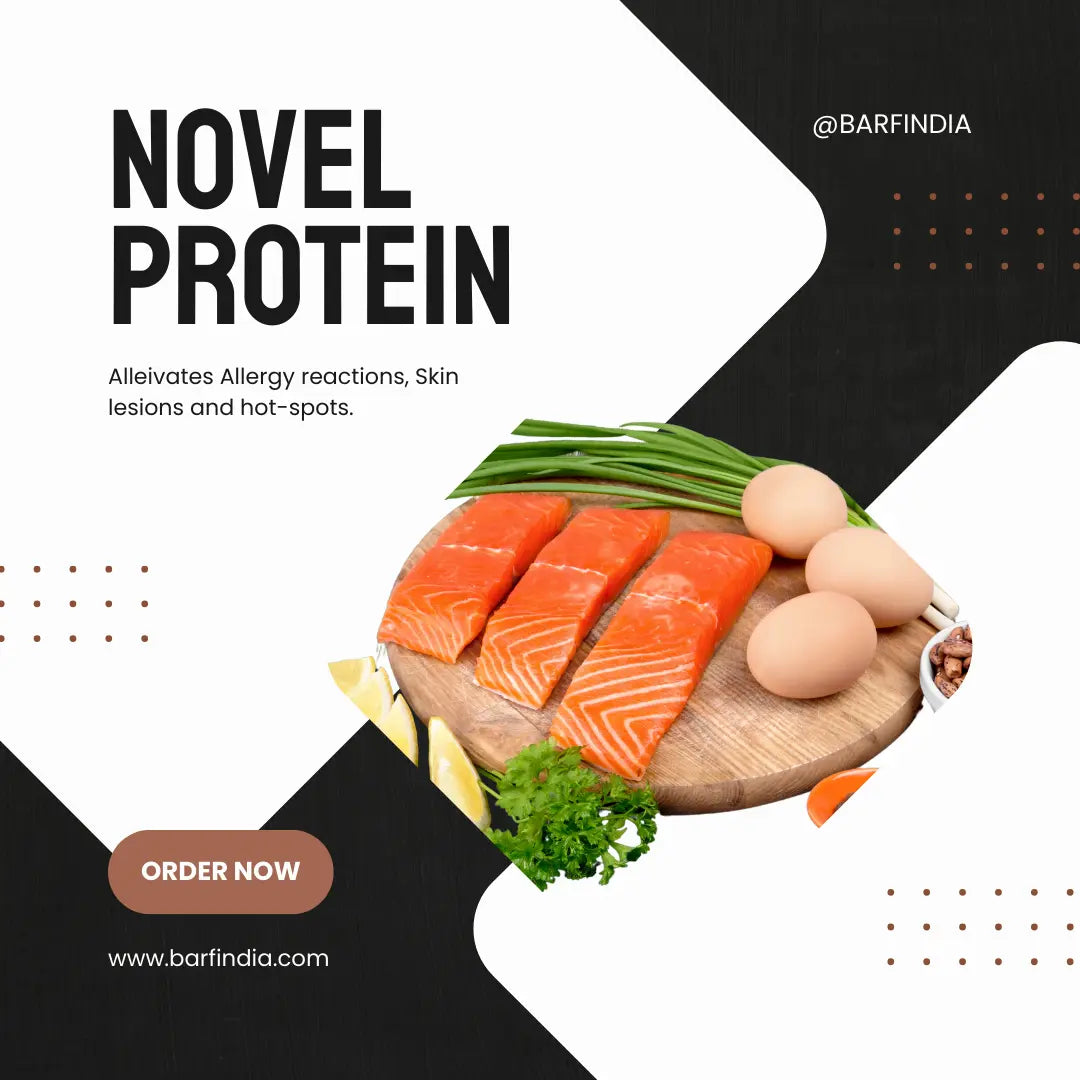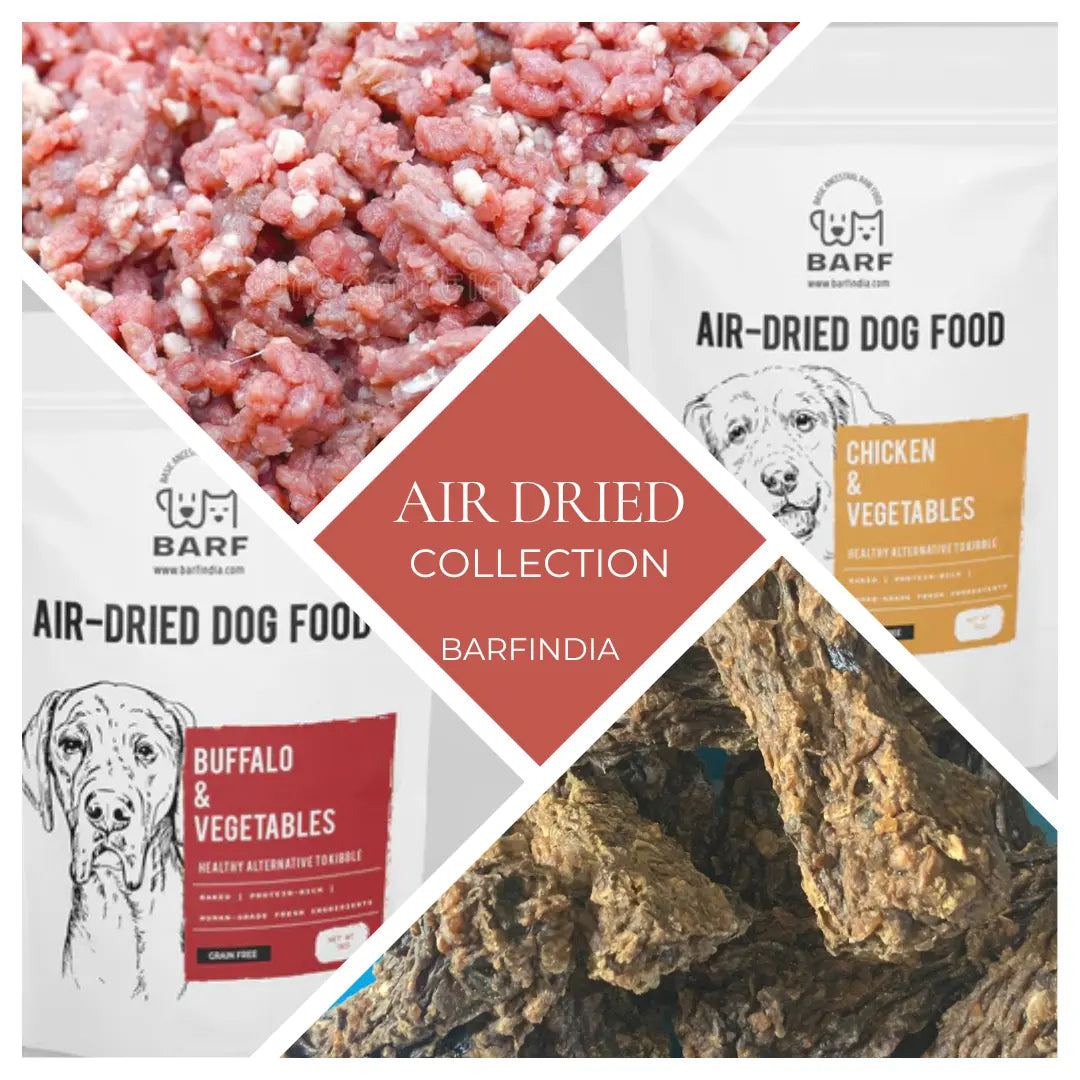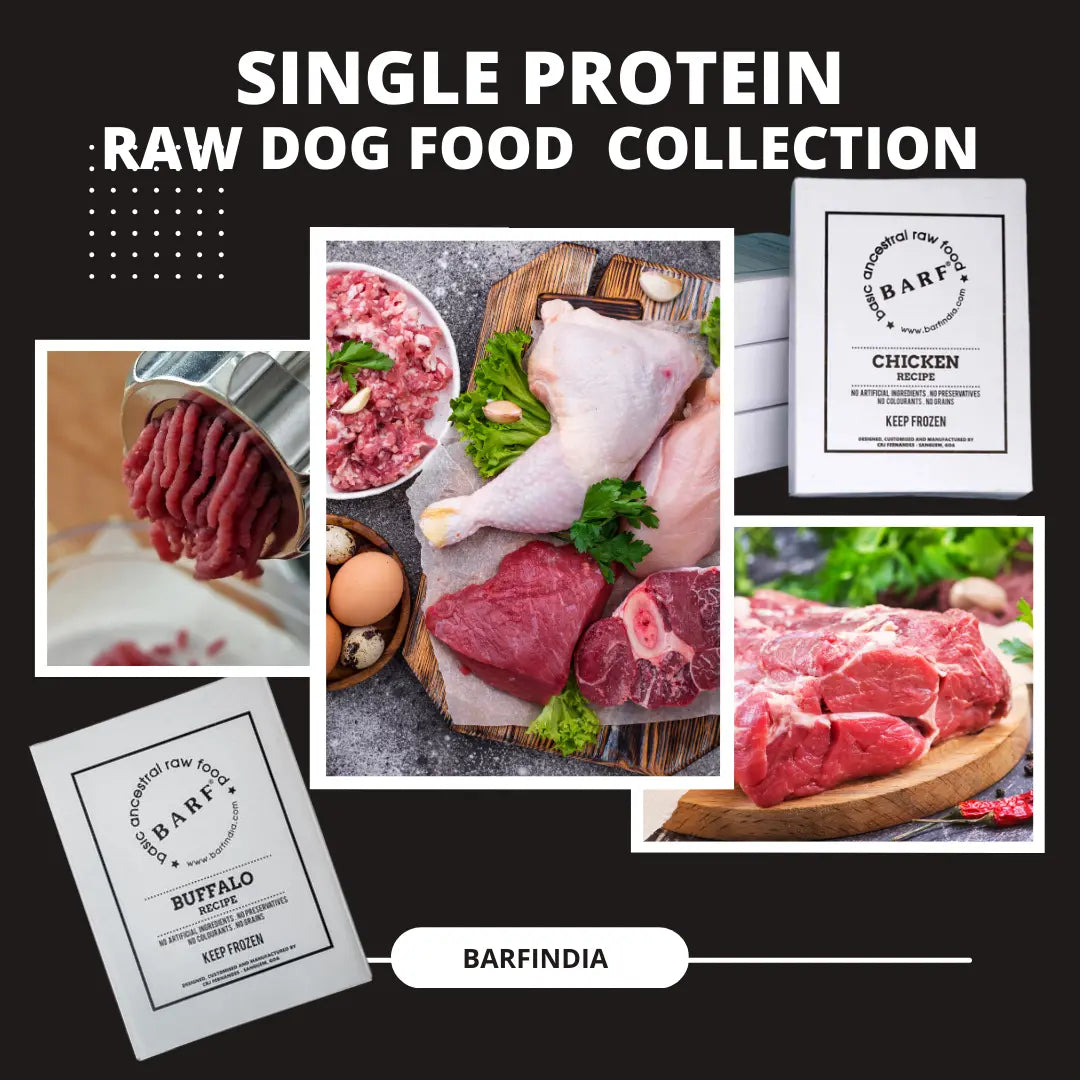
Allergy solutions for dogs: Novel Proteins
Nivedita FernandesUnderstanding Novel Proteins for Dogs with Allergies
Dogs with allergies require special care, especially when it comes to their diet. If your furry friend struggles with food sensitivities, you may have heard of "novel proteins." But what are novel proteins, and how can they help dogs with allergies? In this guide, we’ll explore the benefits of novel proteins, particularly rabbit, emu, and ostrich, and how they can transform the lives of allergy-prone dogs.
What Are Novel Proteins?
The Definition of Novel Proteins
Novel proteins are protein sources that your dog has not been exposed to before. Unlike common proteins such as chicken, beef, or lamb, novel proteins come from less conventional animals like rabbit, emu, and ostrich. These proteins are excellent for dogs with food allergies, as they reduce the likelihood of triggering allergic reactions.
Why Are Novel Proteins Important for Allergic Dogs?
Dogs develop allergies over time due to repeated exposure to specific proteins. Once an allergy forms, consuming the problematic protein can lead to symptoms like:
-
Itchy skin and hot spots
-
Digestive issues (vomiting, diarrhea)
-
Chronic ear infections
By introducing a protein source your dog has never eaten, you minimize the risk of these allergic reactions.
Benefits of Using Novel Proteins
Reduced Allergic Reactions
Since novel proteins are new to your dog's system, they’re less likely to cause an immune response. This makes them ideal for elimination diets, a diagnostic tool used to identify food allergies.
Improved Digestive Health
Novel proteins are often paired with limited-ingredient diets, focusing on high-quality ingredients. This simplicity promotes better digestion and reduces gastrointestinal stress.
Nutrient-Rich Choices
Novel proteins like rabbit, emu, and ostrich are not just hypoallergenic; they are also rich in essential nutrients, such as:
-
Rabbit: High in protein, low in fat, and rich in Vitamin B12.
-
Emu: Packed with iron and omega-3 fatty acids.
-
Ostrich: Lean and nutrient-dense, with a high concentration of zinc and Vitamin B6.
Spotlight on Rabbit, Emu, and Ostrich Proteins
Rabbit – The Lean Option
Rabbit meat is a highly digestible, low-fat protein that’s perfect for dogs with sensitive stomachs. It’s also an excellent source of:
-
Vitamin B12: Supports energy production and neurological health.
-
Niacin: Aids in enzyme function.
-
Selenium: Boosts immune health.
How Rabbit Benefits Allergic Dogs
Rabbit’s mild flavor and hypoallergenic properties make it a top choice for picky eaters and allergy-prone dogs. Additionally, rabbit-based dog food often includes the whole animal, incorporating organs and bones for added nutritional benefits.
Emu – The Iron-Rich Powerhouse
Emu meat is another excellent novel protein choice, offering high levels of iron and omega-3 fatty acids. These nutrients are vital for:
-
Joint health: Omega-3 fatty acids reduce inflammation.
-
Healthy skin and coat: Emu’s nutrient profile helps combat dryness and irritation.
-
Energy levels: The iron content supports oxygen transportation in the blood.
Unique Characteristics of Emu Protein
Emu protein is particularly suitable for dogs requiring a low-fat diet. Its gamey flavor is also a hit with dogs that enjoy robust-tasting meals.
Ostrich – The Exotic Superfood
Ostrich meat is gaining popularity as a novel protein for dogs due to its unique nutrient composition. It is:
-
Low in fat: Ideal for weight management.
-
Rich in zinc and Vitamin B6: Enhances immune function and brain health.
Benefits for Dogs with Allergies
Ostrich meat is highly digestible, making it a great choice for dogs with gastrointestinal sensitivities. Its exotic flavor also appeals to dogs who may be bored with traditional protein options.
How to Introduce Novel Proteins to Your Dog
Step 1: Consult Your Veterinarian
Before making any dietary changes, consult your veterinarian. They can help you determine if your dog’s symptoms are food-related and guide you in selecting the best novel protein.
Step 2: Start with a Limited-Ingredient Diet
Choose a dog food that features a single novel protein and a limited number of additional ingredients. This approach makes it easier to monitor your dog’s response and identify potential allergens.
Step 3: Transition Gradually
Switching to a new protein should be done over 7-10 days:
-
Mix a small amount of the novel protein food with your dog’s current diet.
-
Gradually increase the proportion of the new food while reducing the old.
-
Monitor your dog for any changes in symptoms or behavior.
Choosing the Right Novel Protein Dog Food
Look for High-Quality Ingredients
Opt for dog food made with real, human-grade novel proteins. Avoid products with fillers, artificial additives, or by-products.
Consider Your Dog’s Specific Needs
Each novel protein has unique benefits:
-
Rabbit: Ideal for weight management.
-
Emu: Great for dogs with joint issues or skin allergies.
-
Ostrich: Suitable for dogs needing a low-fat, nutrient-dense diet.
Read Labels Carefully
Check the ingredient list to ensure the protein source is the primary ingredient. Additionally, look for certifications that guarantee the quality and safety of the product.
DIY Novel Protein Meals
If you prefer to prepare homemade meals, here are some tips for incorporating novel proteins:
Ingredients to Use
-
Rabbit: Purchase whole rabbits to include organs and bones.
-
Emu: Opt for ground emu meat or emu steaks.
-
Ostrich: Look for ostrich fillets or ground ostrich.
Recipe Example: Rabbit Stew for Dogs
Ingredients:
-
500g rabbit meat (boneless)
-
1 cup sweet potatoes (cooked, mashed)
-
1/2 cup green beans (steamed)
-
1 tbsp fish oil
Instructions:
-
Cook the rabbit meat thoroughly.
-
Mix with sweet potatoes, green beans, and fish oil.
-
Allow to cool before serving.
FAQs About Novel Proteins for Dogs
-
Can all dogs eat novel proteins?
Yes, but they are especially beneficial for dogs with food allergies or sensitivities.
-
How do I know if my dog has a food allergy?
Common signs include itching, digestive issues, and recurrent ear infections. Consult your veterinarian for a proper diagnosis.
-
Are novel proteins expensive?
Novel protein dog foods are often pricier due to their specialized nature. However, they’re a worthwhile investment for your dog’s health.
Final Thoughts on Novel Proteins
Novel proteins like rabbit, emu, and ostrich offer a lifeline for dogs with allergies. They provide essential nutrients, reduce allergic reactions, and improve overall well-being. By incorporating these unique protein sources into your dog’s diet, you’re not just addressing their allergies – you’re giving them the gift of health and happiness.
Switching to a novel protein diet requires careful planning and monitoring, but the results are worth the effort. Whether you choose a high-quality commercial product or prepare meals at home, your dog will thank you for prioritizing their health.



